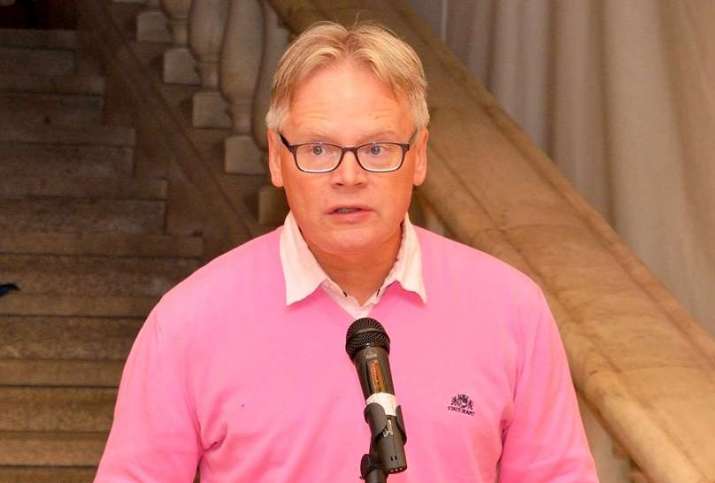
May I be an isle for those who yearn for land,
A lamp for those who long for light;
For all who need a resting place, a bed;
For those who need a servant, may I be their slave.
These are the words Shantideva used to express the ideal of a bodhisattva—an enlightened being who vows to remain in cyclic existence until there are no more beings who suffer—in his legendary text The Way of Bodhisattva (Skt. Bodhisattvacaryavatara).
This text has been translated into many languages, among them Bulgarian, a translation made by the eminent Buddhologist and Tibetologist Professor Alexander Fedotoff. Prof. Fedotoff’s recent and unexpected passing has left a huge loss in the hearts of hundreds of his friends, students, and colleagues, and offerd us pause to reflect on his vast legacy. In a eulogy, his colleagues from the Korean Studies Department at Sofia University “St. Kliment Ohridski” observed: “Whatever Prof. Fedotoff created is so large that it is difficult to be observed. A love for the broad East and the endless quest for knowledge are his inheritance, which we will cherish.”
Fedotoff was an outstanding erudite, a polyglot, and professor of Korean, Mongolian, and Tibetan literature. Born on 6 March 1956 in Novosibirsk, Russia, he graduated from the Department of Mongolian Studies and Tibetology in the Faculty of Asian and African Studies at St. Petersburg University in 1979. After his graduation, he married Snezhana Todorova and moved to study and work in Bulgaria.
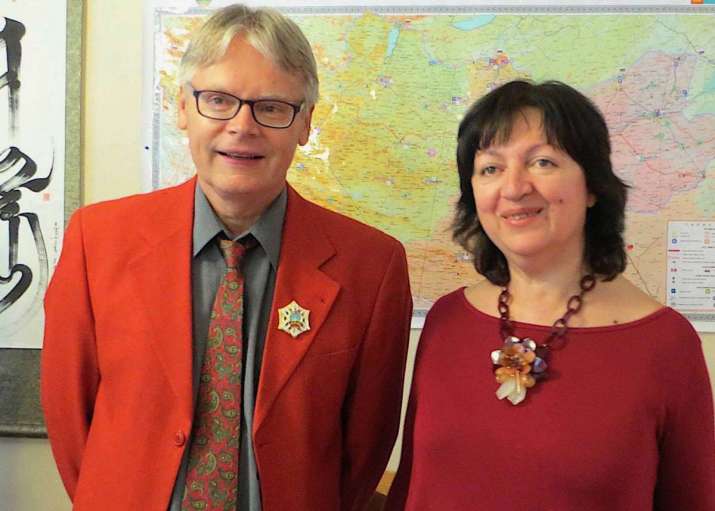
In the 1980s, Fedotoff lived in Dharamsala, northern India, researching the Tibetan Book of the Dead at the Library of Tibetan Works and Archives. During an audience with His Holiness the Dalai Lama, he was given permission to translate the Dalai Lama’s book Daily Meditation into Bulgarian. After two editions, the book is now no longer available on the Bulgarian market being completely sold out, as are most of the books he wrote ot translated.
In 1987, Fedotoff received a PhD in Eastern literature and culture from Sofia University, and in 1998 he became Doctor Habilitatus. A year later, he became a professor of Korean, Tibetan, and Mongolian literature, and in 1998 Fedotoff accepted the post of director of the Center for Eastern Languages and Cultures at Sofia University. Since 2003, he has been director of the Center for Korean Studies, and since 2012 director of the King Sejong Institute in Sofia.
In 2015, Fedotoff received Mongolia’s highest award, the Order of the Polar Star, for his contribution to the development of Bulgarian-Mongolian relations, during the 65th anniversary of the establishment of diplomatic relations between the two nations.
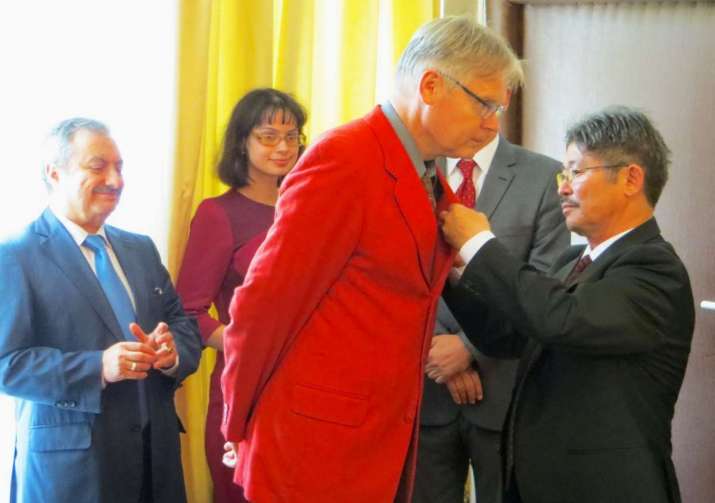
Fedotoff lectured in China, Hungary, India, Italy, Korea, Mongolia, Romania, Russia, Thailand, and Vietnam. He was a member of various international associations for Korean studies, Mongolian studies, Tibetan studies, and Altaic studies, and the author of more than 40 books, hundreds of articles, and dozens of translations of Korean, Mongolian, and Tibetan texts into Bulgarian, including The Secret History of the Mongols and the Tibetan Book of Dead. He was also a passionate traveler, visiting more than 120 countries.
In an interview with the Bulgarian website Diplomatic Spectrum, Fedotoff expressed his love for Asia: “In my heart is the whole of Asia. Of course, I am dealing in particular with Korea, Tibet, and Mongolia—the three areas that I focus on with my research because they are connected to my language skills. However, as an orientalist I love Asia. That is the truth. Firstly, because I was born in Asia—in the city of Novosibirsk, which is in South Siberia. Secondly, Asia has always interested me much more than Europe because so much remains unknown. We must learn to absorb it step by step.”
Fedotoff passed away on 28 October and on 2 November hundreds of his students, friends, colleagues, diplomats, and government ministers came to pay their final respects in front of his body, which was displayed at the central lobby of Sofia University. People waited for hours to offer flowers and pay their respects. Many tears and also deep vibrations of love and gratitude filled the space.
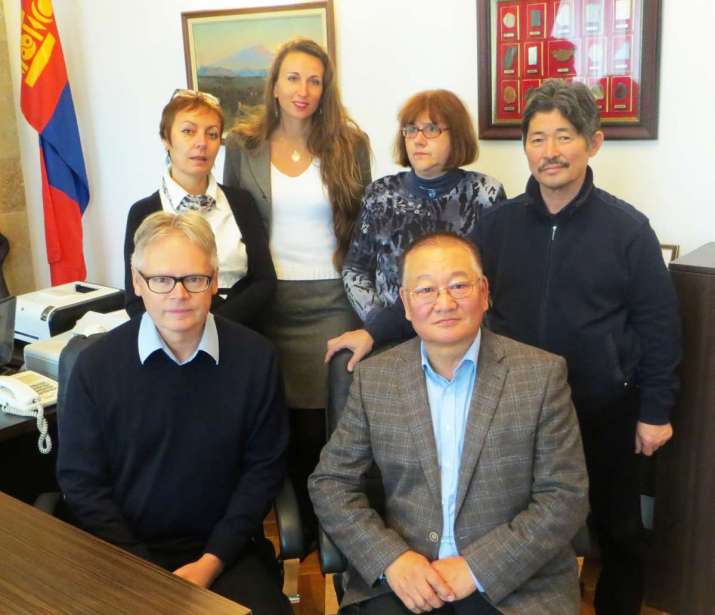
The words of Kiril Petrov, a student in Japanese studies, expressed the feelings of many students at the Center for Eastern Languages and Cultures: “For me, bodhisattva is not only an image of a spiritual essence, inhabiting distant dimensions, but a person who possesses and masters the qualities of a bodhisattva. And these qualities are respect, compassion, unconditional love, sincerity, constant effort, and dedication directed not only for personal enlightenment but for the enlightenment of all living beings. Prof. Fedotoff was a true bodhisattva. Bulgaria was really blessed with such a wonderful person and a wonderful scholar. He was always kind to his students. During each meeting, with his presence, he was spreading consolation, peace, and quietness instantaneously. There was no one else in the whole country who knew so many languages and Asian cultures in depth and still he was humble and respectful to all. He was entirely devoted to the development of Eastern studies in our homeland and made great efforts so that both teachers and students could have more opportunities to develop and acquire knowledge. He accepted all students in the Center for Eastern Languages and Cultures, whether we had lectures with him or not, and regarded us as his own children. He loved us and he was sincerely happy for us.”
Love is the answer to all questions in this life, the secret of all mysteries, and the inspiration behind all great achievements. Prof. Fedotoff’s last book, The Spirit of Spring, is dedicated to love in as it is described in classical Korean poetry. With this book he sends a bright message—to love, because only love gives meaning of our lives. With a message of love ends one age in the Bulgarian academic world, marked with the light of the wisdom of the brilliant scholar and person Alexander Fedotoff. His legacy will continue to inspire generations, his intellect will continue to dispel ignorance, and his spirit will continue to whisper from the Space of Boundless light, following the wise words of the East:
For as long as space remains,
For as long as sentient beings remain,
Until then may I too remain
To dispel the miseries of the world.
(The Way of the Boddhisattva, Shantideva)
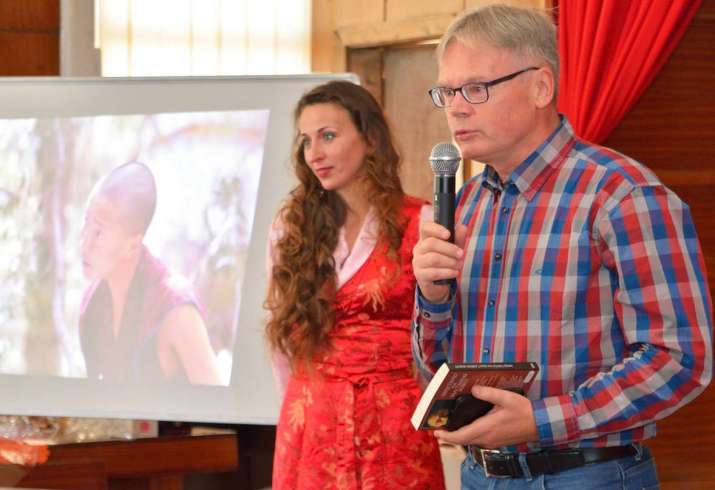
See more
Памяти профессора Александра Викторовича Федотова (International Center of the Roerichs & Museum named after Nicolas Roerich)
The Whole of Asia is in my Heart (Diplomatic Spectrum)












